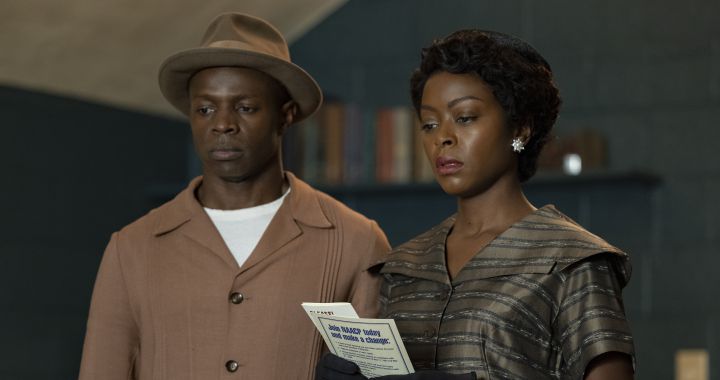The 1950s in the United States saw many events, although none quite like the murder of Emits up to. At just 14, his body was found floating in the Tallahatchie River, Mississippi. provoking a whole protest movement demanding justice for the crime committed.
It hits theaters February 24. Till: the crime that changed everythinga film that tells what happened Grandma Till-Mobley after the death of his son. According to the director, Chinonye ChukwuThat of this mother is already a story based on “resilience, courage in the face of adversity and indescribable desolation”, and which is now brought to the big screen.
But what really happened? It should be noted that the film was based on the aforementioned real events, in addition to trying not to detach from what happened because it is a story of the most delicate and transcendental in terms of civil rights.
Emmett Till’s mother at her son’s funeral, 1955. / Bettman
The protagonist of this story is Grandma Elizabeth Till-Mobley, born in 1921 and died in 2003, worked as an American educator and activist. This last occupation was entrusted to him after the murder of his son, whose motives have never really been proven.
Reportedly, young Emmett died of a beating after allegedly whistling Caroline Bryant, a white worker in a city store. Racism is still latent even in the 21st century, Although in the United States of the 1950s, the segregation between races had yet to be dealt with.
The same cashier said she was harassed by the teenager, however, later court documents showed that Till simply made a purchase and fled without incident. Despite this, the clerk’s husband and his brother, along with another unidentified person, went to look for him at his house and kidnapped him.
They told the police they had released him, but nothing could be further from the truth: two days later, young Till’s body would be found mutilated and in the river, tied to a machine with barbed wire. and with a disfigured face. confront. After, it would be admitted that he was shot in the head.
Grandma Elizabeth Till-Mobley’s fight for justice
One of the most compelling aspects of the story is that Emmet’s mother was able to show her grief for justice. Her son’s murderers were acquitted, but it served as a precedent for equal rights for racialized people in the United States.
Mamie joined the NAACP—in Spanish, National Association for the Advancement of Colored People, founded in 1909— and he managed to make his son’s death a precedent in the fight against social injustice. One of his first requests was to have the coffin opened at Emmet’s funeral, to see “what they had done to his child”, as the film crew put it.
I also authorize Jet Magazine to use the photo of your son’s corpse to attract media attention, transform what happened into a mass phenomenon and move forward in terms of equality. Those who caused the hardest moment of his life may not have received a punishment commensurate with their crime, but the world has moved on making visible the severe attacks suffered by the black community at the time.
Till: The crime that changed everything is now available in theaters.

